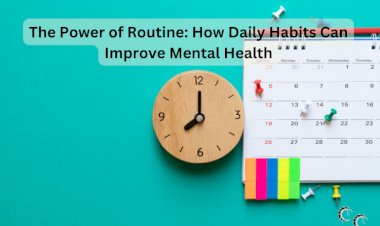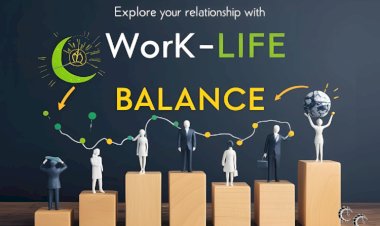Shattering the Silence: Overcoming Anxiety Stigma in the Workplace

In today's fast-paced and competitive professional landscape, the prevalence of anxiety among job seekers and employees is a stark reality. Yet, despite its widespread impact, anxiety remains shrouded in stigma, particularly within the context of the workplace. As a 30-year-old blogger with a deep understanding of mental health issues, both personally and professionally, I feel compelled to shed light on this pervasive stigma and its detrimental effects on individuals seeking employment.
Anxiety, characterized by persistent worry, fear, and apprehension, can manifest in various forms, from generalized anxiety disorder to social anxiety or panic disorder. While it is a legitimate mental health condition deserving of empathy and support, it is often misunderstood and unfairly stigmatized in professional settings.
For job seekers grappling with anxiety, the process of finding employment can be an uphill battle fraught with challenges. The fear of being judged or rejected due to their anxiety can lead to heightened stress levels, self-doubt, and avoidance behaviors, all of which exacerbate their condition and impede their ability to secure meaningful employment.
One of the primary ways in which anxiety stigma manifests in the workplace is through misconceptions and stereotypes. Individuals with anxiety may be unfairly labeled as unreliable, incompetent, or overly sensitive, perpetuating the myth that anxiety is simply a sign of weakness rather than a legitimate health concern.
Moreover, the pervasive culture of productivity and perfectionism in many workplaces can further marginalize individuals with anxiety. The pressure to constantly perform at peak levels, coupled with the fear of making mistakes or falling short of expectations, can intensify feelings of anxiety and inadequacy, creating a toxic cycle of stress and self-criticism.
In addition to the internalized stigma experienced by individuals with anxiety, there are also external barriers that hinder their employment prospects. Discriminatory hiring practices, lack of accommodations for mental health conditions, and limited access to supportive resources can all contribute to a sense of exclusion and marginalization among job seekers with anxiety.
Furthermore, the reluctance to disclose one's anxiety for fear of negative repercussions only serves to perpetuate the cycle of stigma and silence. Many individuals choose to suffer in silence rather than risk being unfairly judged or discriminated against by prospective employers—a decision that only compounds their distress and perpetuates the invisibility of anxiety in the workplace.
As a society, it is incumbent upon us to challenge the stigma surrounding anxiety and create more inclusive and supportive work environments. Employers have a responsibility to educate themselves and their staff about mental health issues, foster a culture of openness and acceptance, and implement policies and practices that accommodate the diverse needs of their employees.
This includes offering flexible work arrangements, providing access to mental health resources and support services, and actively promoting mental wellness initiatives in the workplace. By prioritizing the well-being of their employees and creating a culture of empathy and understanding, employers can help to break down the barriers that prevent individuals with anxiety from fully participating in the workforce.
Additionally, job seekers with anxiety must be empowered to advocate for themselves and their needs throughout the employment process. This may involve disclosing their anxiety in a strategic and informed manner, seeking out employers who prioritize mental health and well-being, and accessing support from mental health professionals and peer networks.
In conclusion, the stigma surrounding anxiety in the workplace poses significant challenges for job seekers, perpetuating fear, shame, and exclusion. By raising awareness, challenging misconceptions, and fostering a culture of empathy and support, we can create more inclusive and equitable work environments where individuals with anxiety are valued, respected, and empowered to thrive. Together, we can shatter the silence and build a future where mental health is prioritized, and all individuals are given the opportunity to succeed.





























